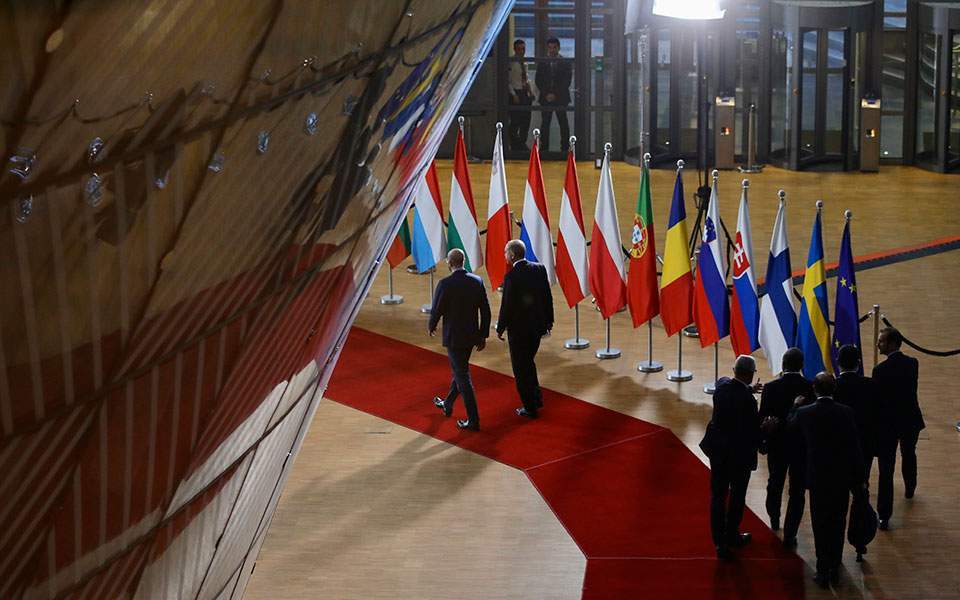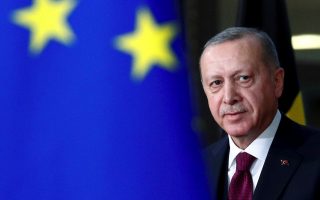The USA and Germany and their stance on Turkey

Turkish President Recep Tayyip Erdogan and the coronavirus pandemic are Greece’s twin headaches, linked by their consequences on the economy, which are certainly greater from the latter, though the former’s impact is not negligible either, given Turkey’s constant provocations.
Many of our European partners do not acknowledge this fact and do not even care, either because this would go against their interests or because they take a narrow-minded view.
In this sense, Turkish aggression will be a topic of discussion between leaders at the European Council summit on Thursday and Friday, though it is not at all clear whether they will put off any decisions on sanctions against Turkey until a later date or take measures now, albeit “light” ones. It is also uncertain whether sanctions would bring about a change of attitude in Erdogan, who has spent the past few years whipping up public opinion against Greece and Cyprus, but also against Europe and the West more generally. Athens is quite right to put more weight on a Europe-wide embargo on arms sales to Turkey, rather than on strict economic sanctions.
At the same time, the United States’ stance toward Turkey is also very important, on the one hand because of the impending change in government in Washington, and, on the other, because Germany and the other Europeans showing “tolerance” and “understanding” for Erdogan’s strong-arm tactics are now also arguing that any decisions should be put off until President-elect Joe Biden assumes office so that the US and EU can form a joint policy toward Turkey.
According to a note being distributed by American embassies in European capitals, therefore, Washington:
– Is concerned by continued Turkish exploratory and drilling operations in parts of the Eastern Mediterranean where Greece and Cyprus also claim to have rights.
– Is concerned by the possibility of conflict between two NATO allies and is encouraging a resumption of bilateral dialogue as soon as possible, as the current situation is also benefiting Russia and other rivals.
– Is examining different possible responses to Turkey’s provocations that would not undermine NATO unity. It is also keeping abreast of the internal EU dialogue on possible sanctions and welcomes the discussion on US-EU coordination in efforts to influence Turkey’s position.
– Is in favor of cooperation for developing energy resources in the Eastern Mediterranean that will help contribute to energy security and economic prosperity. In this context, it also encourages Turkey’s participation in such a scheme.
– On the matter of principles, it encourages all states to resolve disputes concerning maritime borders and rights peacefully and on the basis of international law.
The conclusion is that the US recognizes Turkey’s aggressive tactics but is in favor of the German – rather than the French – approach. It also wants Turkey to remain in NATO and believes that it should be a part of efforts to jointly explore for energy resources in the Eastern Mediterranean. As far as we know, this is also the line that will be taken by the new US secretary of state, Antony Blinken. Just so we know where we stand.





